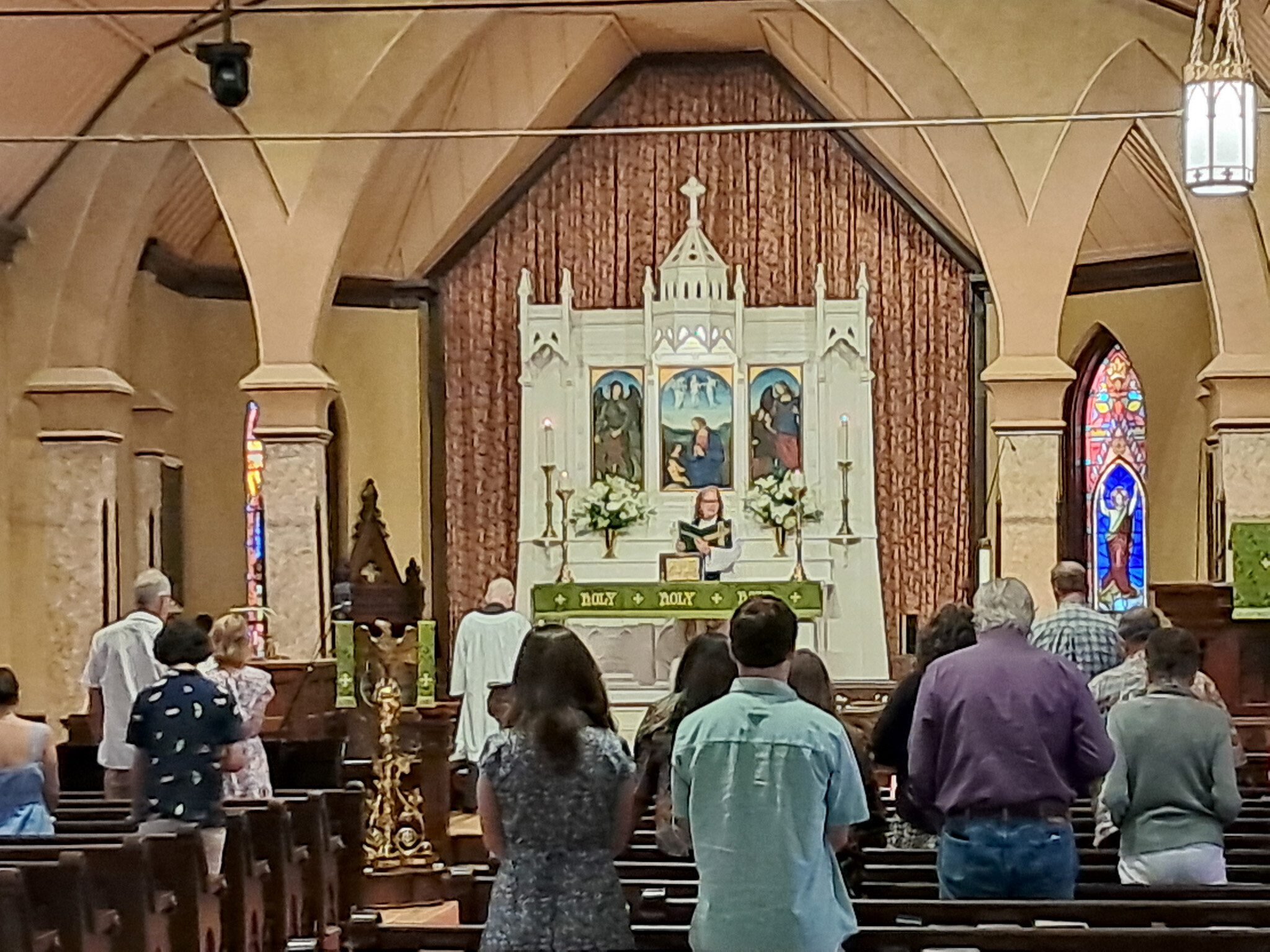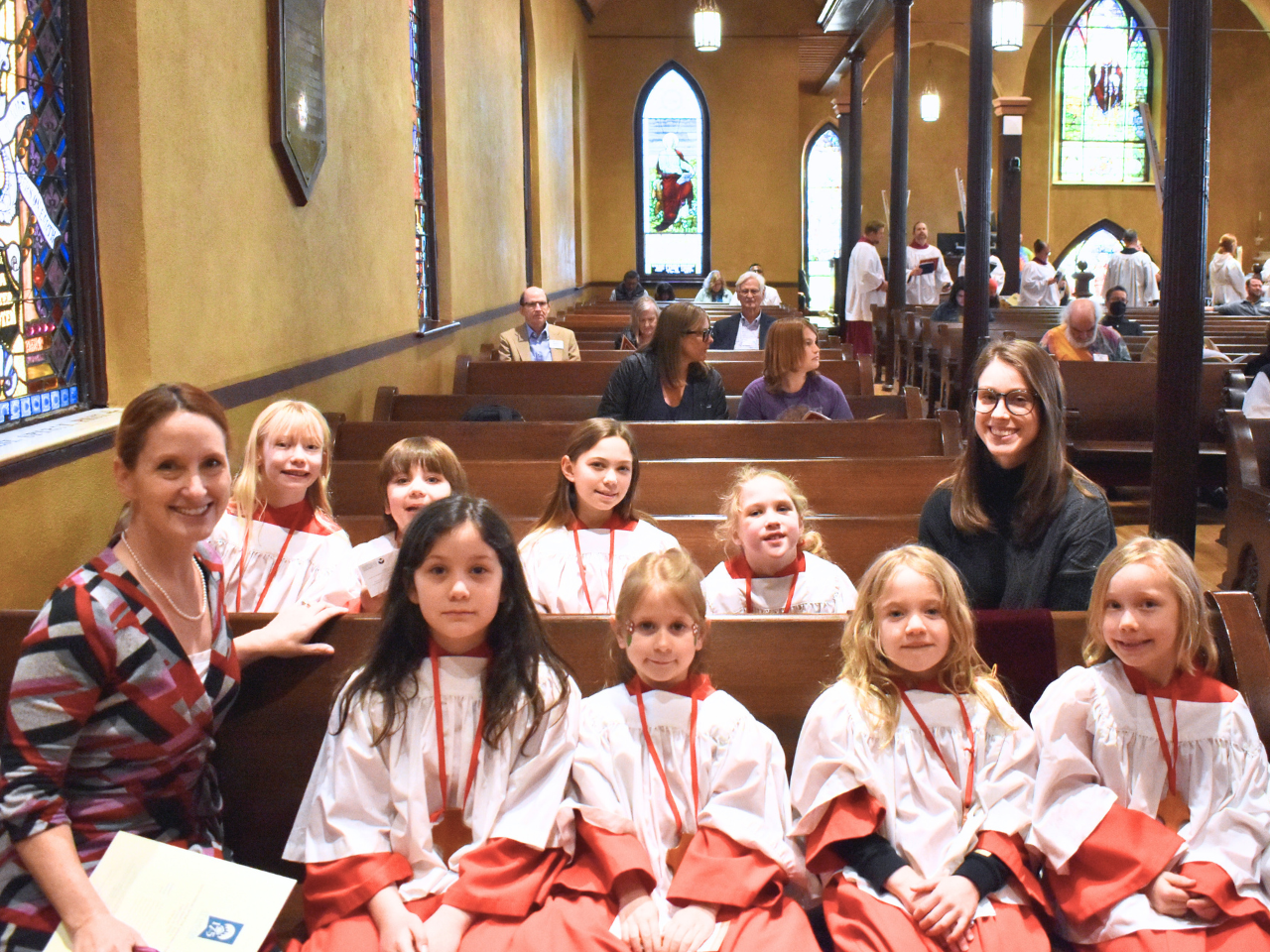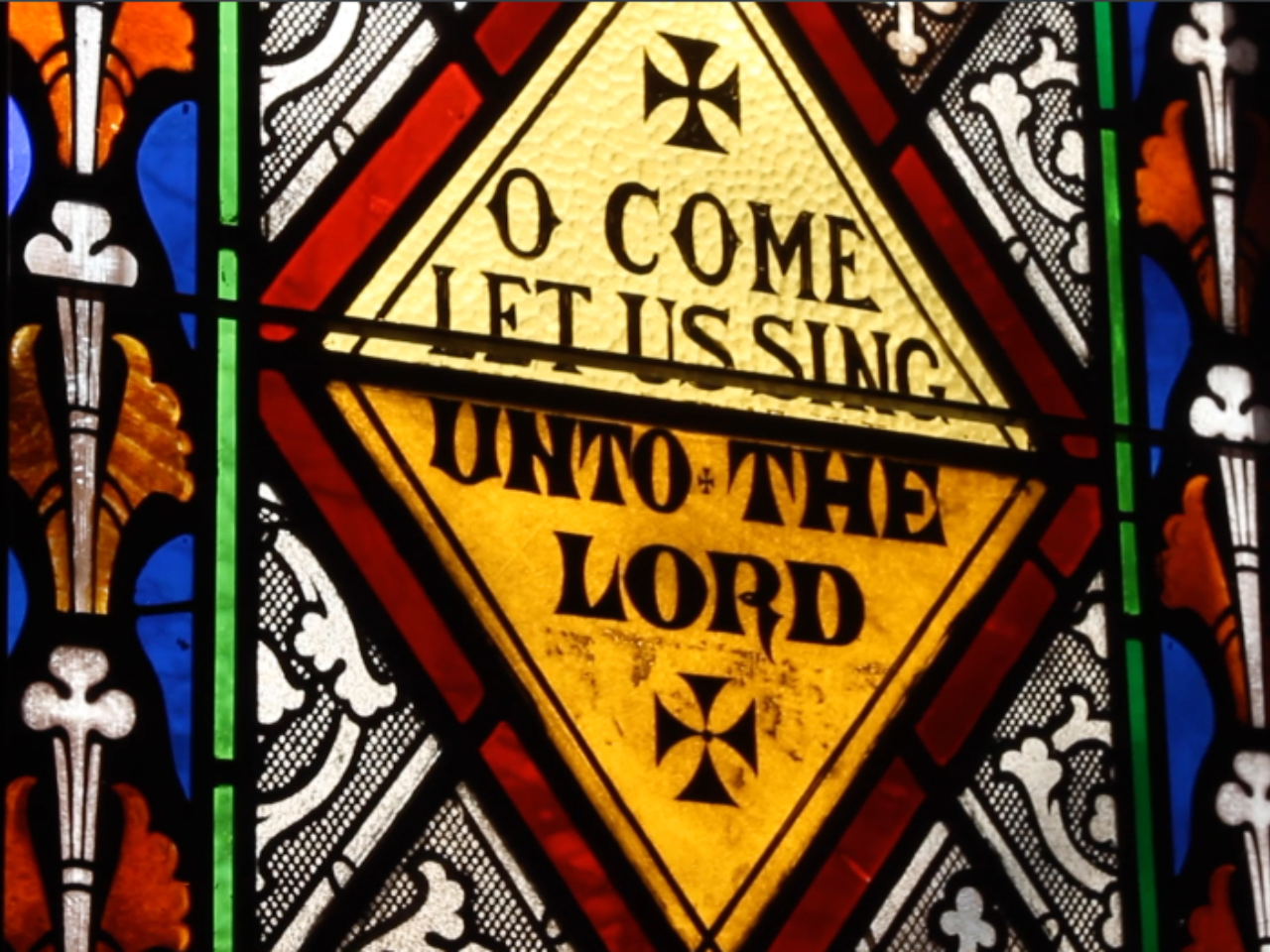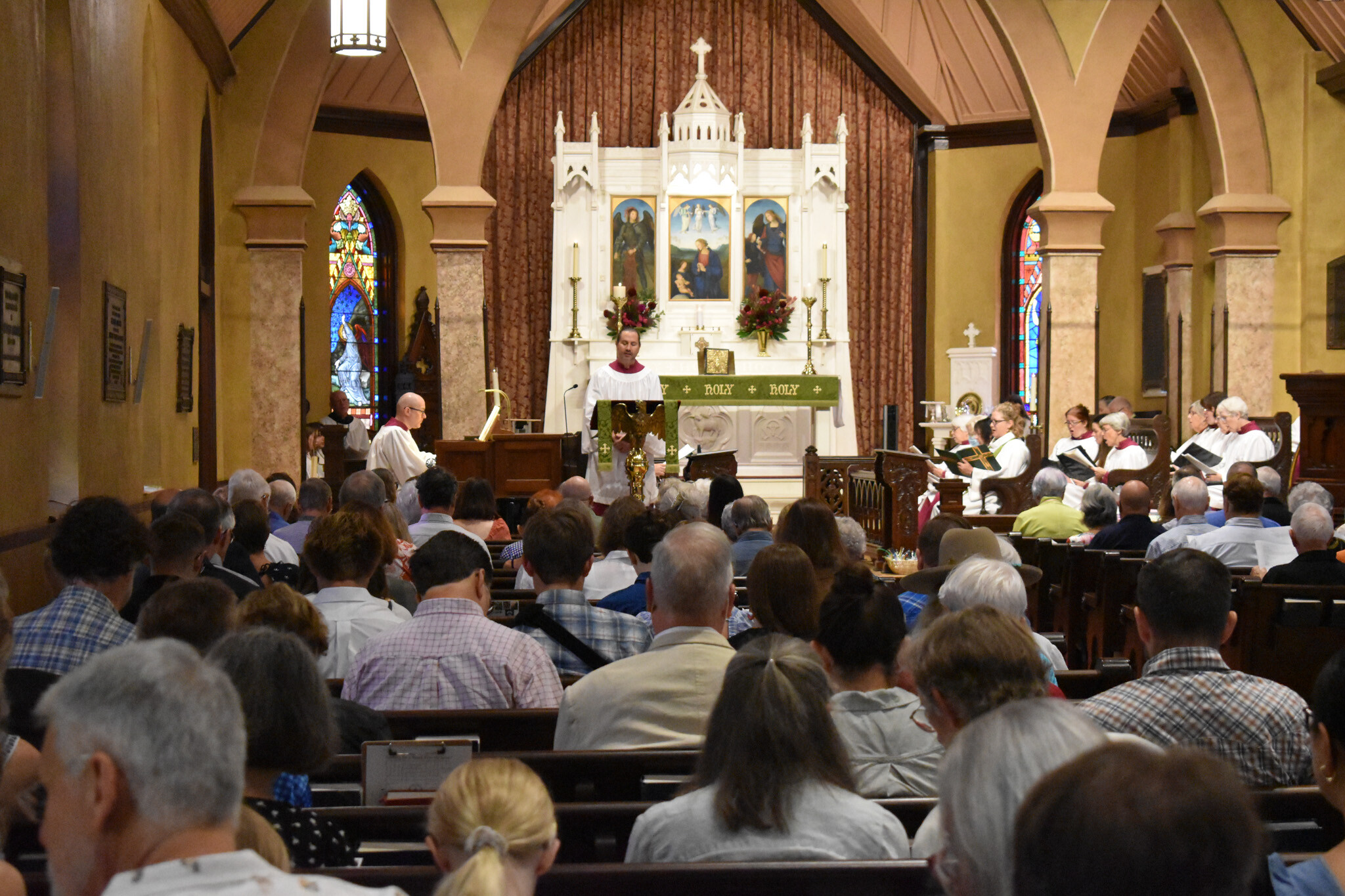
Our musical selections this week respond to a variety of themes found in the appointed texts of the day, which form their own series in this Season after Pentecost.
The Collect (a form of prayer) of the Day concludes the Entrance Rite of the Eucharist. On feasts and in the particular seasons it highlights themes of the occasion, but in Ordinary Time it does not necessarily relate to the Lessons of the day, still less so in the modern system in which a three-year Eucharistic lectionary is accompanied by a one-year cycle of Collects. Nevertheless the Prayer Book Collects – some ancient and still held in common with Roman Catholic use, some dating from the English Reformation of the sixteenth and seventeenth century, some modern and peculiar to the Episcopal Church – comprise a gathering of many fine prayers that are worth study and use on their own merits.
Our Collect this week draws upon the image found in I Peter 2 of Christ as the cornerstone of the Church and its members as stones building up a ‘spiritual house’. This has inspired our choice of entrance hymn, ‘Christ is made the sure foundation’ (518, the second half of Hymn 519, ‘Blessed city, heavenly Salem’), which draws upon the same imagery. The traditional chant melody – one of the great hymn-tunes of the plainsong repertory – is found at 519; the music we sing, at 518, is taken from the concluding ‘Alleluia’ of the great English Baroque composer Henry Purcell’s anthem ‘O God, thou art my God’.
In Ordinary Time the Epistle readings generally form their own series not particularly related to the Gospels. We are currently near the end of the reading of Galatians, where this week we find the Apostle continuing to explicate Christians’ freedom from the observance of religious law. This freedom is not to be equated with license, he says, but rather to be led and governed by the Spirit, whose fruits he lists in contrast to the ‘works of the flesh’.
The Spirit is the object of the prayer that constitutes our Sequence hymn, ‘Come down, O Love divine’ [516]: a prayer so fervent that the ‘yearning’ for the Spirit ‘shall far outpass the power of human telling’, yet a prayer not of one seeking a goosebump-covered emotional state, but rather one who, as the Apostle reminds us, has ‘crucified the flesh with its passions and desires’: ‘O let it [love] freely burn, til earthly passions turn to dust and ashes’, writes our hymnist. The writer–singer asks to be clad outwardly with love, inwardly with humility, this spiritual clothing lighting the faithful way. In this it echoes last week’s Epistle passage: ‘As many of you as were baptized into Christ have clothed yourselves with Christ.’ This fine hymn is a partial translation of a fourteenth-century Italian spiritual song, best known in its pairing with Ralph Vaughan Williams’s lovely tune ‘Down Ampney’, to which we sing it congregationally. Another twentieth-century English composer, William Harris, also wrote a beautiful tune which forms the basis of his own anthem setting, sung by the choir at the Offertory.
Our Gospel portion begins a travel narrative in Luke which we will follow for the next ten weeks, in which Jesus sets forth qualities demanded of those who follow him. This week Our Lord teaches that the path of discipleship demands total and unhesitating commitment, and two hymns have been chosen to elaborate this theme. ‘Take up your cross, the Savior said’ [675] draws upon another dominical saying to urge the singer to renounce self (the cross being nothing less than the instrument of one’s own death), a message underscored by its setting to a sturdy and vigorous, work-song-like early American tune. ‘I want to walk as a child of the light’ [490] (whose author and composer, Kathleen Thomerson, was recently buried from St David’s) declares the writer–singer’s desire to follow Jesus, who like the Spirit in ‘Come down, O Love divine’ lights the way to God. Like ‘Take up your cross’, this much-loved song sets forth the rewards of discipleship: ‘the joy of Jesus’ in this case; ‘abundant life’ and ‘victory o’er the grave’ in the other. The yearning, first-person singular text of ‘I want to walk’, in contrast to the series of stern imperatives in ‘Take up your cross’, is reflected in its lilting melody.





Login To Leave Comment